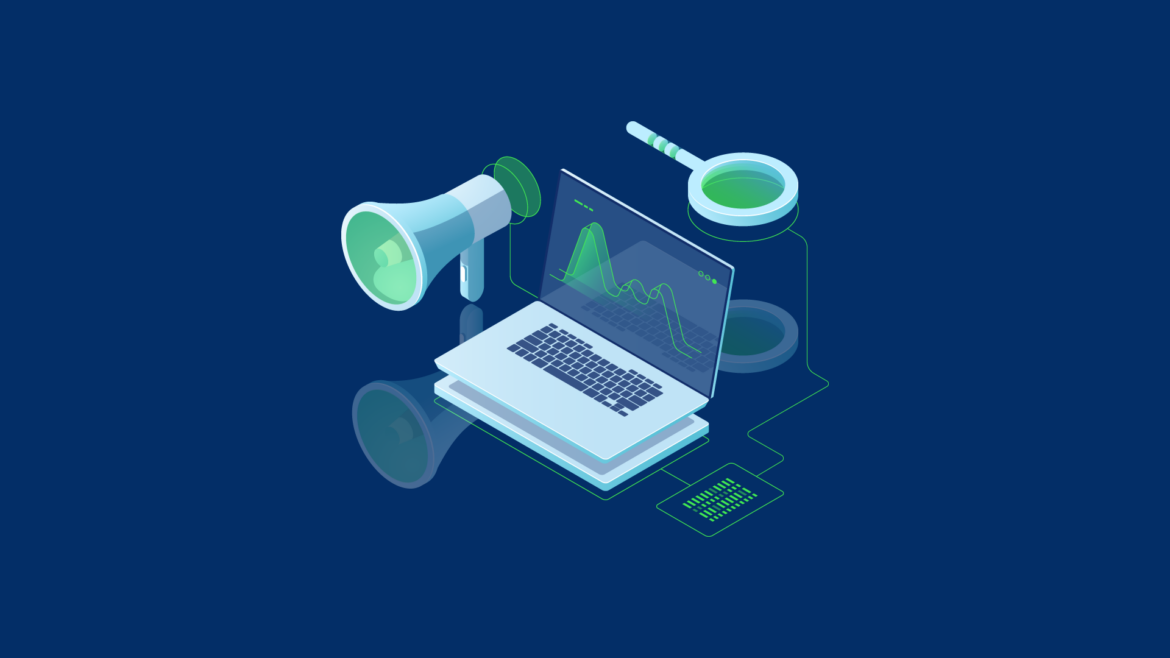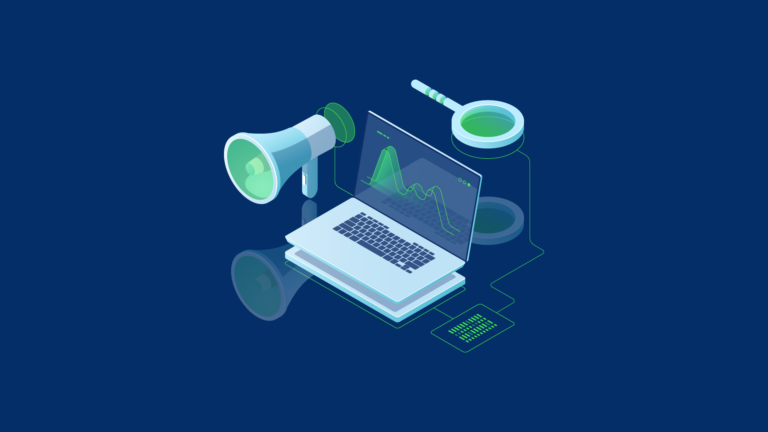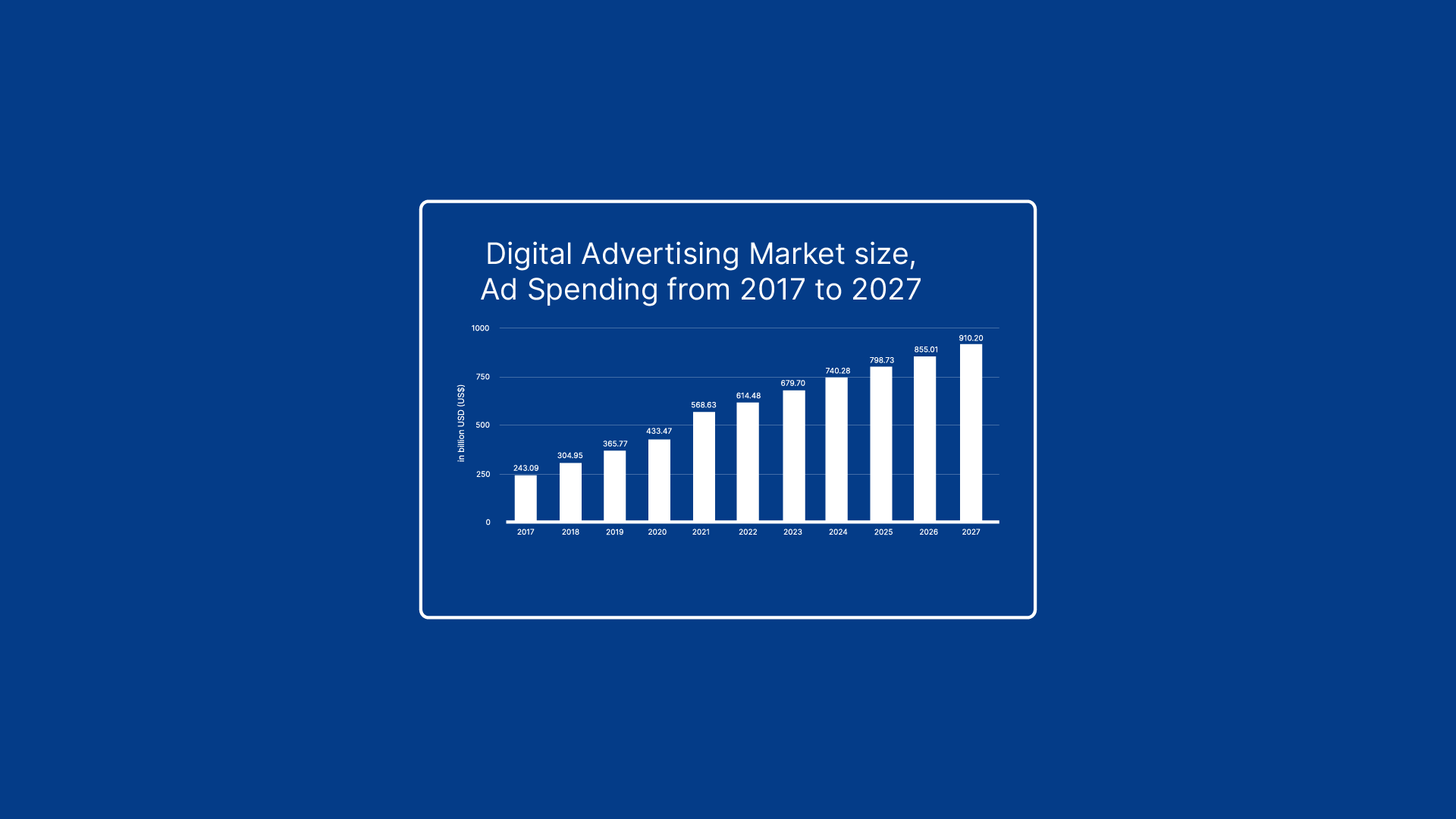Digital marketing is a broad term that encompasses a variety of activities aimed at promoting brands through various media channels. The goal is to increase brand awareness, build customer loyalty, and ultimately generate leads or sales.
Digital marketing has become a key part of modern marketing strategies. In fact, according to Forrester Research, digital marketers’ spending is expected to reach $146 billion by 2023.
Digital marketing is a combination of several disciplines, such as social media, SEO (search engine optimization), email marketing, mobile advertising, etc. These days, digital marketing is becoming a necessity for businesses of all sizes.

What is Digital Marketing?
Digital Marketing is the promotion of products and services through digital channels like websites, mobile apps, video games, etc. Digital marketing strategies are often referred to as “online” marketing because the majority of campaigns target an audience that views content via the Internet.
What is Digital Marketing?
Digital Marketing is the promotion of products and services using electronic devices such as smartphones, tablets, laptops, desktop PCs, and other connected devices.
Digital marketing includes all types of promotional efforts that can be done digitally including:
- Search engine optimization (SEO)
- Search engine marketing (SEM)
- Content marketing
- Influencer marketing
- Social media marketing
- Email marketing
- Display advertising
- E-commerce marketing
- Conversion rate optimization, analytics, ad targeting
- Affiliate marketing
Digital marketing is a huge system of channels through which businesses need to get onboarded. However, while many companies have a presence across multiple platforms, there is still a lot of room for growth.
To truly maximize the reach of their campaigns, businesses must dive deeper into the intricacies of today’s vast cross-channel world.
Digital marketing is about creating meaningful interactions with potential and existing customers based on the data collected over time.
By engaging with customers in a digital landscape and setting yourself as an industry thought leader, you will build brand awareness, establish trust, and position your company at the forefront when the consumer is ready to buy.
With an omnichannel digital strategy, you can understand your target audience better and engage them in different ways. You can also expect higher retention rates because you will have a stronger relationship with your customers.
A study by Invesp found that companies with strong omnichannel had a retention rate of 89%, whereas those with weak omnichannel had a rate of just 33%.
In terms of the future of digital marketing, there is an increasing number of wearable devices available to users. These devices are becoming more intelligent and capable of interacting with each other.
Social media will continue to evolve, moving away from text posts and towards conversations. Video content will be optimized for SEO purposes and email marketing will become more personalized.
“Marketing is about connecting with customers through digital channels. Digital is at the core of every aspect of our lives today. From social networks to mobile apps, digital touches almost every aspect of our lives.” -Sanjay Dholakia, former chief marketing officer, Marketo.
The History of Digital Marketing
Digital Marketing has been around since the 1900s. It started as a way to advertise products online. Companies like Google and Facebook were built on top of it. But it wasn’t until the mid-2000s that marketers started using social media platforms to promote brands.
That’s when Digital Marketing became an industry.
In 1877, Alexander Graham Bell demonstrated an early version of the telephone at a meeting of the British Association for the Advancement of Science. He called out “Mr. Watson, come here! I want to see you!” and then heard Mr. Watson say, “I am coming.” A few months later, he received a letter from Watson saying, “I am busy.”
The first commercial phone call took place in 1880.
The first-ever live broadcast was made in 1878. People were excited about the invention of the radio, and they wanted to see it. So they went to the opera house and paid money to watch the performance.
That’s when the digital strategy was born.
Today we have all kinds of ways to reach our audience, like social media, blogs, video streaming, etc. But back then, there wasn’t any other way to get your message out there.
How does a Business define Digital Marketing?
Digital marketing is an essential component of any successful business. Every company needs to have a web presence and a strong online presence. If you don’t, then you’re missing out on potential customers and revenue.
You need to create content that will attract people to your site, whether it’s through search engine optimization, social media advertising, or even paid ads. Once you’ve attracted visitors, you’ll need to convert them into paying customers.
Digital marketing techniques often involve the collection of information about website visitors, usually in the form of analytical tools.
The main difference between digital marketing and other types of marketing is that it focuses on optimizing and improving customer experience while traditional marketing focuses on brand awareness, acquisition, and retention.
A content marketing manager, for instance, can create a series of blog posts that generate leads for a new eBook the business just released. A social media marketer can then help promote these blog posts through paid and organic posts across the business’s social media profiles.
Perhaps the email marketer will create an email campaign to send all of the people who downloaded the eBook more information on what the company does. We’ll talk more specifically about these different types of digital marketers in the article.
Why is Digital Marketing Important?
Digital marketing allows you to reach a wider audience than you could through traditional marketing and targets those who are most likely to purchase your products or services.
It also offers you the opportunity to track results daily and adjust your strategy accordingly. You can also measure your success against competitors, and adjust your strategies as necessary.
Digital Marketing is a term for all forms of online marketing. It includes social media marketing, search engine optimization, display advertising, mobile marketing, email marketing, pay-per-click advertising, website analytics, web design, and many other areas.
Digital marketing strategies often involve multiple channels and tactics. Some of the main objectives of digital marketing campaigns are to generate brand awareness, increase visits to websites, boost lead generation, and enhance revenue through sales and conversions.
Digital marketing is an effective way to reach customers. These methods are all cheaper than other marketing methods, like print ads or television commercials.
The Benefits of Digital Marketing
Digital marketing has become one of the key methods through which companies can benefit from their online presence, as well as build brand awareness and increase sales. It also helps to keep track of customers’ behaviour to increase the conversion rate while decreasing the abandonment rate.
These are some of the benefits of digital marketing:
- Digital marketing allows your business to compete on an equal footing with larger companies.
- Digital marketing tactics are the most cost-effective way to market your business because they allow you to reach more people for less money.
- Digital marketing allows you to target your audience effectively.
- Digital marketing helps you reach your customers through social networks.
- SEO and local SEO can help you reach more qualified customers through the internet.
- Most people begin their buying journey online.
- Digital marketing helps you reach potential customers who access the internet through their smartphones and tablets.
- Digital marketing is the best way to measure the success of any type of marketing campaign.
- You can easily and rapidly adapt your strategy and tactics to achieve the best results.
- It provides you with valuable insights into how well your marketing is performing. There are plenty of tools available to help you monitor and improve your overall digital marketing strategy.
Types of Digital Marketing Channels
Digital marketing channels have evolved and changed since the beginning of time. As we enter the age of digital advertising, many businesses are looking at ways to use the internet and digital platforms to reach audiences.
Some businesses focus all of their energy on one particular type of digital marketing while others spread themselves across several channels.
For example, a company could pay to get their blog post promoted to millions of Twitter users, but also run Facebook ads to target their existing customers.
Website Marketing
A website should be the center of your digital marketing strategy. It is an important tool for any company looking to market itself online. It needs to be fast, mobile-friendly, and easy to use while representing your brand, products, and services clearly and memorably.
A good site makes it easier for visitors to navigate the website, find what they are looking for, and buy without having to go anywhere else. A great website will increase your conversion rates and keep your users coming back for more.
Zyro is an easy-to-use website builder that lets any beginner create amazing websites and launch online stores that make money. There are no coding skills needed to start.
Search engine optimization (SEO)
SEO is an essential component of any digital marketing strategy. It’s the practice of ensuring your website appears at the top of search results for relevant keywords. There are many ways to optimize a site for SEO purposes, including using meta tags, title tags, alt text, keyword density, and internal linking.
SEO is a science because it involves using certain strategies to rank well on search engine results pages. However, SEO is also an art because it’s not always possible to tell what will happen next when you’re trying to get ranked higher.
Search engines change their algorithms all the time, so it’s hard to predict exactly what will happen. You can still follow best practices and try to optimize your site, though.
SEO is an important part of content marketing. It helps you get found online when someone searches for your products or services. You need to create high-quality content that will help search engines understand what your website is about.
Then you need to optimize your site for search engines like Google, Bing, Yahoo!, and others.
SE Ranking is an excellent keyword research tool that allows users to find out what terms are being searched most commonly by their target audience and potential customers.
Content Marketing
Content marketing is a form of marketing that helps businesses create valuable content that attracts their target audiences.
Content marketing is about creating content that resonates with your target audience and delivering it through various channels. You can also use content to engage with your audience and encourage them to share your content with others.
Content marketing is a broad term that includes everything you create to promote yourself and your brand.
Content marketing can be anything from an eBook about your company culture to a blog post about why you love working at your company. You can also use content marketing to sell products or services.
For example, if you’re selling a product, you could write a blog post about the benefits of using your product. If you’re selling a service, you could offer tips on how to use your service effectively.
Here are the best content optimization software programs that can help you improve the quality and effectiveness of your content.
Content marketing requires a lot of time, effort, and a well-thought-out content marketing strategy. You need to create great content that ranks high in search engine results and engages your audience. You also need to promote your content effectively through social media channels.
Surfer is the Content Intelligence platform that unifies content strategy and creation into one process – to give content teams the tools they need to grow brands, generate organic traffic, and increase revenues.
Pay-Per-Click Advertising
PPC campaigns usually have multiple goals. Some are purely informational, like informing users about a product or service.
Others are sales-oriented, like getting them to click through to a landing page or buying something. There are also other types of PPC campaigns, like remarketing, which is when you pay to show ads to people who already visited your site.
You can track your conversions through your chosen platform. You can also see how your campaign is performing.
Pay-per-click (PPC) advertising is an online marketing technique that allows advertisers to pay each time someone clicks on their ad. Advertisers bid on keywords related to their products or services.
When a user searches for a keyword, the advertiser’s website appears at the top of the search results. If the visitor clicks on the advertiser’s link, the advertiser pays the search engine a fee every time a visitor clicks on their advertisement.
Pay-per-click advertising can also be used for non-paid listings, like sponsored links.
If you are looking for quality results when doing digital marketing SEMRush is the leading platform. Use SEMRush’s paid keyword research tools for finding the right keywords to connect with your audience.
Do SEO, content marketing, competitor research, PPC and social media marketing from just one platform.
Social Media Marketing
Social Media Marketing is an effective way to drive traffic to your website. It allows you to reach out directly to your target market. Social network sites like Facebook, Twitter, Instagram, Pinterest, Reddit, TikTok, and many others allow you to engage your customers and create a two-way conversation.
To get the most out social media marketing, you should create a tailored social media marketing strategy. A strategy will include what type of posts you’ll make, where you’ll share those posts, and when you’ll share them.
The goal of social media marketing is to build relationships with your followers. The more engaged your followers are, the better. To do this, you must provide value to your followers by creating engaging content.
The key to success is in choosing the right social media marketing tools to help you manage, automate and measure your results
You can also share valuable information about your company, products, services, and events. Social channels create a platform where you can connect with other businesses and make them aware of your existence.
Learn more about social media marketing with our ultimate guide to social media marketing.
Social media marketing allows you to engage directly with your customers. If someone likes what they see, they might click through to your site. Social media also helps you reach out to potential customers who aren’t searching yet.
You can share information about upcoming events or promotions, answer questions, and keep users informed about news relevant to your industry.
If you are looking for a powerful solution for social media management, then it is worth trying one of the best out there – Sprout Social.
Spout social is an all-in-one social media management platform that unlocks the full potential of social to transform not just your marketing strategy, but every area of your organization.
Email Marketing
Email marketing allows businesses to reach out to their current and prospective customers, and this makes it an essential digital marketing tactic for digital marketers.
Email marketing is an effective tool for reaching out to customers because it enables businesses to send emails directly to their target audience.
You can also track the success of their campaigns using the best email marketing tools.
Email content includes information about your products and service, news about your company, personalized offers, customer successes, links to case studies, and technical or business briefs, all designed to get you to respond.
Value is key to ensuring that your emails are opened, read, and not deleted right away, especially if you’re trying to sell something. Personalized content and offers that are relevant to your customers go a long way to boosting engagement.
Email marketing requires both art and science. You need to create an email that is appealing and engaging, but you also need to send it at the right time and frequency. Too few emails will result in low engagement, while too many emails may annoy your subscribers.
We have put together an ultimate guide to email marketing, to help you get started.
If you are ready to start reaching out to your email list try SendX. It is a good affordable option to experiment with, especially for small businesses.
SendX is a powerful email marketing software that allows you to create campaigns, build your list and automate your marketing.
Affiliate Marketing
Affiliate Marketing is a form of online advertising that allows you to earn commissions by referring customers to merchants. Merchants offer products and services through websites, social media platforms, mobile apps, etc.
Affiliates may also receive compensation when visitors click on links to merchants’ sites and purchase items.
There are many different ways to become an affiliate marketer. Some choose to write about products they like and earn commissions through advertising and links.
Others prefer to find companies that offer affiliate programs. Some networks specialize in connecting brands with affiliates. Regardless of your method, the first step is finding a product you think will sell well.
Affiliate programs are an important part of any online store. If you’re looking to promote your products through affiliate programs, there are a few things you should keep in mind. First, you will need to create a product that is easy to sell.
Second, you will need to provide the affiliates with all the necessary tools to help them succeed. Third, you will need to offer them incentives for great results. Finally, you will need to market your program to attract affiliates.
Inbound Marketing
Inbound Marketing is a method of attracting, engaging, and delighting your target audience through every step of the buying cycle. It’s about creating experiences that work with the customer, instead of against them. To achieve this goal, you need to use all forms of digital marketing tools including blogging, video, social media, and email, throughout an inbound campaign.
The truth is, we live in a world where people don’t want to be sold anything. They just want solutions to their problems. So, you need to learn how to walk before you can run. Be authentic, be transparent, and most importantly, be helpful.
When you do those three things, then you’ll be able to start building trust with your prospective customers. And once you’ve built enough trust, then you can begin promoting your offerings.
The best customer relationship management software built around the inbound marketing approach is HubSpot.
HubSpot is an award-winning software company that helps businesses build their brands through better lead generation, customer engagement, sales enablement, and marketing automation.
Video Marketing
Video is still king when it comes to engaging audiences online. You need to create videos that are both informative and entertaining. Videos are also great for SEO purposes, so make sure you optimize them properly.
Video can be very effective at connecting with your audience and creating an emotional response. It’s also great for sharing stories because you can put yourself in the story and connect with your audience emotionally. You can create videos about anything, whether it’s a product or service, a hobby, or a cause.
Here is a list of the best video editing software for every budget to help you get started.
The video should always be part of your content strategy. You need to focus on what you’re going to say first before you even create the video. Once you have a clear idea of what you’re trying to say, then you can figure out if you need to hire someone to help you produce a video.
If you’re not sure what kind of video you need, look on YouTube to get some inspiration. Here is a guide to downloading YouTube videos offline if you need to.
Marketing Automation
Automation can be defined as the ability of software to perform tasks automatically or semi-automatically. Marketing Automation helps companies automate repetitive tasks and save time. This includes email marketing, social media management, website publishing, customer service, and other areas where humans are involved.
Marketing Automation allows you to create automated campaigns that will reach your target audience across all platforms. Your sales team can easily track the results of each campaign, allowing you to quickly identify what works best for your product.
For example, You can schedule posts to multiple social networks at once, so you can focus on growing your brand instead of managing multiple accounts
Many benefits come from using marketing automation. Here are some of them:
1. Increased Customer Engagement. Marketing automation helps you engage your customers in a more personalized way. You will know what they like and dislike about your product/service, which means you can provide better services and products for them.
2. Better Lead Generation. When you have an automated marketing campaign set up, it will help generate leads for you. An example of this would be when you send out emails to your list regularly. Your subscribers will get used to receiving those emails every time, so if they don’t want to receive them anymore, they’ll unsubscribe.
3. Improved Sales Processes. If you use marketing automation, then you can easily track all your campaigns and see how each one is performing. This way, you can improve your sales process by identifying problems before they occur. For instance, if you notice that most of your leads aren’t converting into sales, then you can make changes to your content or offer to increase conversion rates.
4. More Responsive Emails. With marketing automation, you can create responsive emails that adapt to their recipients’ devices (e.g., mobile phones). This makes sure that your message gets delivered even if your subscriber doesn’t open the email right away.
5. Lower Costs. One of the biggest reasons why businesses choose marketing automation is because it saves money. Instead of having to pay employees to manually manage marketing activities such as sending emails, and creating landing pages, these activities can now be done automatically.
6. Easier Analytics. Since you’re able to track data automatically, you won’t need to hire expensive analysts to do this task.
ActiveCampaign is an easy-to-use tool for creating beautiful emails that get results. With powerful automation tools and advanced reporting, it’s the perfect solution for small businesses looking to automate their email marketing campaigns.
Podcast Marketing
A podcast is a series of audio or video episodes made available online. It can be free or paid, but some are only available through a subscription service. Some podcasts are hosted by individuals while others are produced by companies, organizations, and even governments.
A podcast can be a great way to share your expertise with others by providing them with valuable information and insights. It can also help you build trust within your audience and increase your influence. If you are interested in starting a podcast, here is a step-by-step guide on how to start a podcast.
Here is a list of the best podcast hosting platforms to get started.
There are many different types of podcasts, including:
- Business Podcasts – These podcasts talk about business topics, such as entrepreneurship, leadership, management, finance, careers, etc.
- Lifestyle Podcasts – These podcasts are focused on subjects like health & fitness, food, parenting, relationships, music, sports, travel, etc.
- News/Politics Podcasts – These podcasts discuss current events, politics, and other newsworthy topics.
- Science Podcasts – These podcasts cover science, technology, engineering, mathematics, and more.
- Sports Podcasts – These podcasts focus on sports, including football, basketball, baseball, hockey, soccer, tennis, golf, MMA, NASCAR, etc.
Podbean is the best easy-to-use podcast host, with a free plan and attractive premium pricing.
Does Digital Marketing Work?
Digital marketing is easy because it allows you to reach your target audience at any time and place. You can also interact with them in real-time. Digital marketing is cheaper than traditional marketing. It doesn’t cost anything to get started. All you need is an internet connection and a phone number.
Digital marketing is the fastest type of marketing. Gone are the old days of massive print runs, mailouts, and snail-mail. You can write an online campaign in the morning and have your emails sent out later that day. Within minutes, you can see whether it’s effective because you can track the number of opens, clicks, and purchases as they happen.
That gives you the ability to make changes quickly and save time if something doesn’t work.
Digital marketing is more effective because there’s transparency to it. You can engage directly with your customer base. So you’re never a cold, impersonal company. That means you can build real connections, improve engagement and trust, and convert buyers into fans who will love your product.
How Does Digital Marketing Work?
Digital marketing campaigns often begin with a strategy phase. During this stage, you define what you want to achieve with your campaign. You may also identify your target customer and determine the best channel(s) through which to reach them. Next comes the creation of content. What will you create? How will you distribute it? And finally, you need to measure its success. Once all of these questions have been answered, you can execute your plan.
Define your marketing goals
It is important to understand what you want to achieve when setting digital marketing goals. Do you want to increase sales? Increase traffic? Build brand awareness? Retain existing customers? Or all of the above? Once you’ve identified your goals, you’ll need to determine what tactics will help you reach them. You may also consider whether there are any specific objectives you’d like to accomplish through your digital marketing efforts. If so, those might be worth considering as well.
Identify your target audience
Who are you trying to reach? What is your message? Who is your audience? How old are they? Where are they located? What kind of income do they have? These questions help you understand what type of information you need to provide. You also need to consider whether you should focus on one demographic or multiple demographics. For example, if you’re selling a product to children, you might not want to advertise to adults.
Identify the right marketing channels and marketing tactics
You may not know exactly what kind of audience you want to reach, but you can start by looking at similar products and services that already exist in the marketplace. You can also think about what problems your product solves.
If you’re creating an app, for example, you may want to focus on mobile-first because that’s where most of your potential users will be. Or if you’re selling a physical product, you may want to target consumers living in certain regions or states. Once you’ve decided on your audience, you’ll need to figure out how best to reach them.
That means deciding whether to spend your time and resources on paid search ads, organic social media marketing, or both.
Develop and optimize content and messaging for each channel
Analyzing your data helps you understand your audience. If you know that your customers like to browse your site on their mobile devices, then you might need to optimize your website for mobile viewing. But you also need to keep an eye on other ways your customers interact with your brand.
Some customers may prefer to read your blog posts on their desktop computers while others may prefer to view them on their phones. You should always strive to create a single brand experience across all platforms. That means creating a consistent message and tone throughout your marketing efforts.
Distribute the Content
Once you’ve defined your goals, created your content, and chosen your distribution channels, you need to get the word out. This involves distributing your content to the places where your audience spends their time online.
It could mean posting links to your web pages on popular blogs or forums, sharing links via email newsletters, or even paying for advertising space on websites. The key here is consistency. Make sure that every piece of content you distribute has the same voice and style as everything else you share.
Measure Results
Once you have created content, and distributed your marketing messages, you’ll need to measure your progress toward achieving them. This part of the process involves tracking the performance of your different marketing initiatives.
It’s easy to get overwhelmed with all of the tasks involved in running a successful campaign. To make sure you stay focused and don’t lose overall strategy, it’s helpful to set up a dashboard that summarizes key metrics.
For example, you could use Google Analytics to monitor which campaigns generate more leads than others. You could also use HubSpot to see which types of content perform better.
Key Takeaways
That‘s the scoop on digital marketing. If you’re just getting started with digital marketing, there are plenty of tools available to help you get off the ground. And once you do launch your campaign, you’ll find yourself armed with a wealth of knowledge that will allow you to continually improve your business.
Digital Marketing is important because it allows businesses to keep in touch with their clients, and it allows them to provide them with more personalized services. Digital marketing has become a necessity for companies today, and there is no reason why you shouldn’t consider including it in your overall marketing plan.
As companies adopt technology at an ever-increasing rate, digital marketing will become increasingly important for businesses of all sizes. By investing in digital marketing strategies, you can create sustainable competitive advantages and build brand value.







